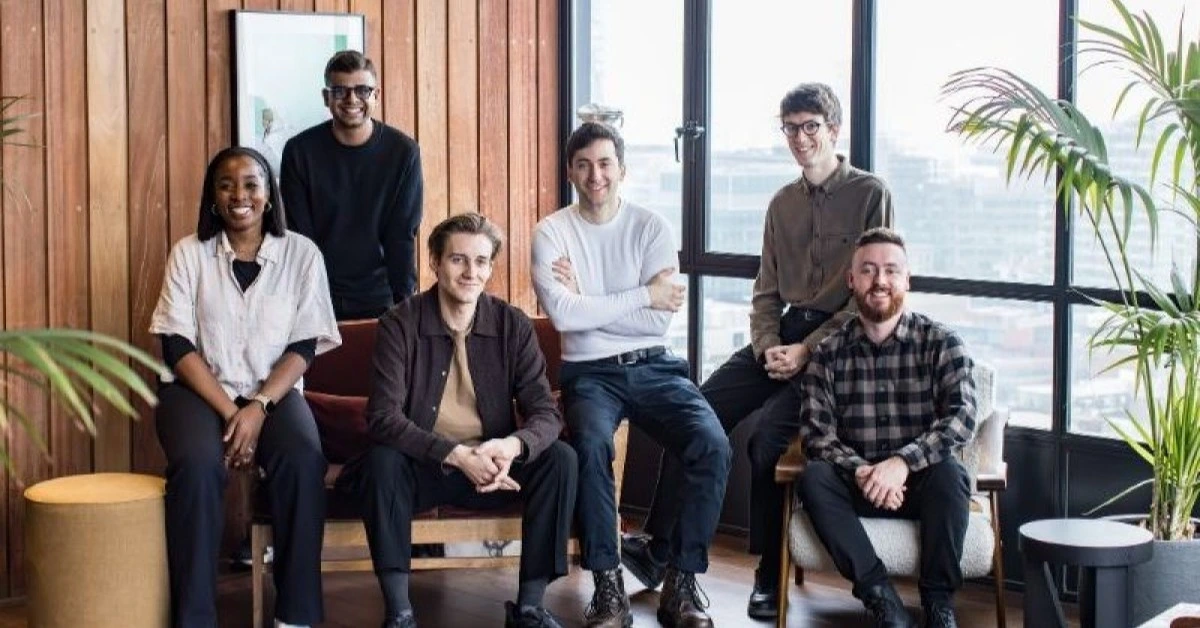
USA – A new biotech startup, Latent Labs, has emerged from stealth mode with US $50 million in funding.
Founded by Simon Kohl, a former scientist at Google DeepMind, the company is focused on using artificial intelligence (AI) to design and optimize proteins.
By partnering with biotech and pharmaceutical companies, Latent Labs aims to make biology programmable, enabling researchers to create new therapeutic molecules using AI.
Transforming protein design with AI
To understand the significance of Latent Labs’ work, it’s important to recognize the vital role of proteins in human biology. Proteins control essential functions in cells, from enzymes and hormones to antibodies.
Each protein is made of about 20 amino acids, which link together and fold into 3D structures that determine their function.
Traditionally, identifying a protein’s shape was a slow and complex process. This changed with DeepMind’s AlphaFold, which used machine learning to predict the structures of around 200 million proteins.
These advancements allow scientists to understand diseases better, create new drugs, and even design synthetic proteins for new applications.
Latent Labs takes this a step further by aiming to “computationally create” new therapeutic molecules from scratch.
By leveraging advanced AI models, the company hopes to accelerate drug discovery and reduce the reliance on traditional wet lab experiments.
The journey from DeepMind to Latent Labs
Kohl began his career at DeepMind, where he worked with the AlphaFold2 team before co-leading the protein design division and establishing DeepMind’s wet lab at the Francis Crick Institute in London.
During this time, DeepMind also launched Isomorphic Labs, a sister company focused on AI-driven drug discovery. Seeing the potential for AI in protein design, Kohl decided to start Latent Labs in late 2022.
He wanted to create a more focused and agile company dedicated to building cutting-edge AI models for protein design. By mid-2023, he had incorporated the business in London.
“I had a fantastic and impactful time [at DeepMind], and became convinced of the impact that generative modeling was going to have in biology and protein design in particular,” Kohl said in an interview with TechCrunch.
His goal was to create a lean, focused company that could quickly innovate in protein design. He believed the field was vast, with many unexplored opportunities, and that a nimble startup could make a significant impact.
Building a global AI-Biology hub
Latent Labs has grown to a team of 15 employees, including two former DeepMind researchers, a senior engineer from Microsoft, and several PhD scientists from the University of Cambridge. The company operates from two locations:
“This enables us to test our models in the real world and get feedback to see if they are progressing as we expect,” Kohl explained.
While wet labs play a key role in the company’s early work, the long-term goal is to reduce the need for physical experiments by shifting biology into the computational realm. Kohl envisions a future where drug discovery is almost entirely digital.
“It allows us to make really custom molecules without relying on the wet lab—at least, that’s the vision,” he said.
“Imagine a world where someone has a hypothesis for a drug, and our models can instantly create a protein drug with all the desired properties baked in.”
A unique business model in biotech
Unlike traditional biotech firms, Latent Labs does not plan to develop its own drugs. Instead, it will collaborate with pharmaceutical and biotech companies, either by licensing its AI models or supporting drug discovery projects through partnerships.
“We feel the biggest impact we can have is by enabling other biopharma, biotech, and life science companies—either by giving them direct access to our models or partnering with them on specific projects,” Kohl explained.
The company’s US $50 million funding includes a previously undisclosed US $10 million seed round and a fresh US $40 million Series A round.
Investors include Radical Ventures and Sofinnova Partners, along with backing from firms like Flying Fish, Isomer, 8VC, Kindred Capital, Pillar VC, and notable angel investors such as Google’s chief scientist Jeff Dean, Cohere founder Aidan Gomez, and ElevenLabs founder Mati Staniszewski.
A large portion of this funding will go toward hiring machine learning talent and covering the high cost of computing power.
“Compute is a big cost for us—we’re building fairly large models, and that requires a lot of GPU power,” Kohl said. “This funding sets us up to scale our models, grow our teams, and expand commercial partnerships.”
The future of AI-driven drug discovery
With the global biologics market expected to grow to US $1.37 trillion by 2033, Latent Labs is entering a competitive space with a unique business approach.
It is not the only company using AI for protein design—other notable startups include Bioptimus, which raised US $76 million for its “GPT of biology”, and Cradle Bio, which secured US $73 million in Series B funding.
Additionally, the industry features well-established firms such as Exscientia, Atomwise, and Tempus, all working to integrate AI into drug discovery.
However, Kohl believes the field is still in its early stages, and the best approach is yet to be determined.
“There have been some very interesting seeds planted, with AlphaFold and other early generative models,” Kohl said.
“But the field hasn’t yet converged on what the best model or business approach will be. We have the capacity to truly innovate.”
XRP HEALTHCARE L.L.C | License Number: 2312867.01 | Dubai | © Copyright 2025 | All Rights Reserved